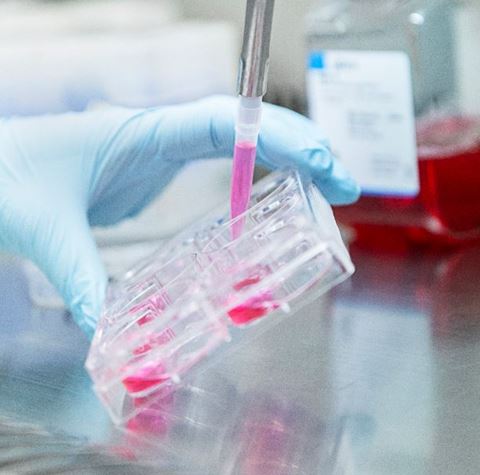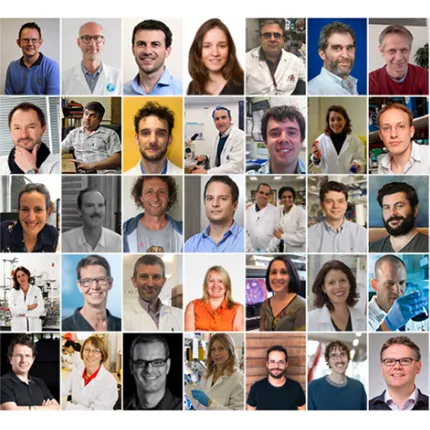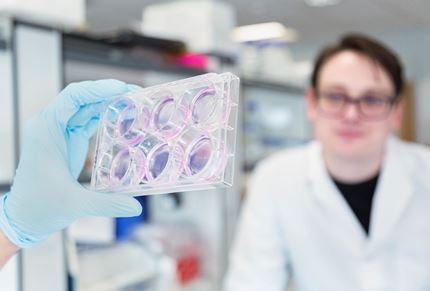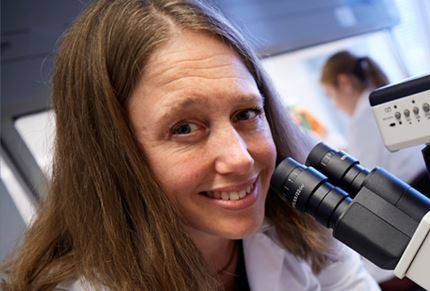Research projects
Developing a new targeted treatment for lung cancer
Project aim
Dr Carla Lucia Esposito and her team are exploiting nanomedicine technology to develop a new type of treatment for non-small cell lung cancer. In the future, their treatment has the potential to become a non-toxic and highly targeted way of treating the disease.
Hope for the future
In 2020, lung cancer was the 2nd most common cancer and the biggest cause of cancer death worldwide, with an estimated 1.8 million people losing their life to the disease. Non-small cell lung cancer (NSCLC) is the most common type of lung cancer, making up 8 in 10 of all lung cancers and responsible for around a quarter of all cancer related deaths. Finding new and effective treatments for lung cancer would have a huge impact on the lives of people affected by the disease.
Dr Carla Lucia Esposito and her team hope to develop nanomedicines for NSCLC which will be able to deliver a new type of anti-cancer therapy directly to tumour cells in the lungs. This novel approach to treating lung cancer could save millions of lives in the future.


Meet the scientist
Dr Carla Esposito has a love of food and relaxing with friends over a good plate of pasta and a bottle of wine. She also enjoys reading and her favourite books are fantasy novels -“they open a window into a world made of magic”.
The science
DNA methylation is a process that occurs in cells which helps to control when genes in DNA are switched on and off – a vital process for the normal, healthy function of cells in our body. DNA methylation is driven by a specific set of enzymes in our cells called DNMT enzymes. In cancer cells, these enzymes are often overactive, and this can cause changes to our DNA which help to drive cancer.
Drugs that block DNMT enzymes have been developed for cancer, but testing has revealed they don’t work as well as expected and are toxic to healthy cells. Dr Esposito and her team have designed a new type of drug that they have shown can target and neutralise specific DNMT enzymes. They now want to understand exactly how these drugs work in the context of cancer and develop a practical way to deliver these drugs to the heart of lung tumours using nanomedicine technology.
The team will first test the effectiveness of their drugs against non-small cell lung cancer and gather in depth information on how these drugs work to target and kill cancer cells. They will also develop a new delivery system for their drug using nanoparticles which they hope can target a therapeutic payload to the tumours. The researchers hope that in the future their new delivery system will have the potential to be used as a non-invasive, inhalable treatment approach for lung cancer.
As have many, I lost a loved one to cancer. This reinforced my commitment to cancer research, creating a deep connection with this disease.Dr Carla Lucia Esposito
Become a Curestarter and help us fund the next pioneering research project.
Our research projects wouldn't be possible without the funds we receive from people like you. Just £24 can pay for an hour of research.
Support Us




